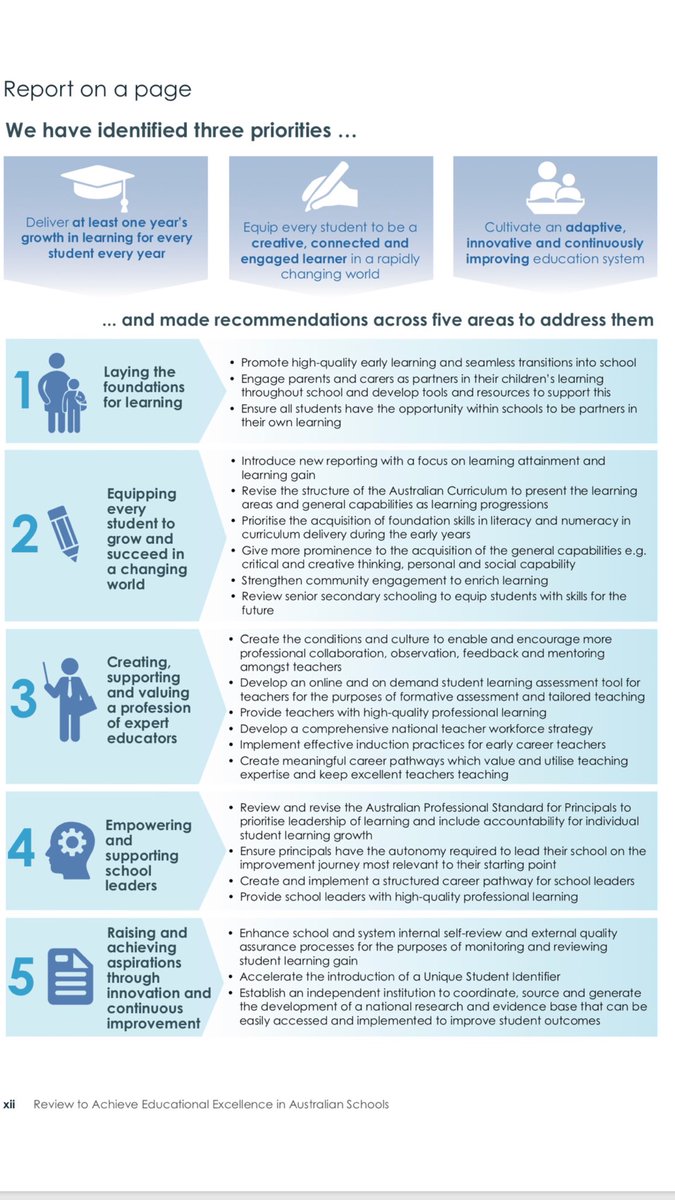So the wheel continues to turn. First we had progression points. Then we moved to ‘Standards’. Now we are focusing on the individual:
Under-achieving students would focus on improvement, while more advanced students would be pushed to meet “stretch targets” beyond their age or year level. End-of-year results would be scrapped in favour of “learning progressions” that can be assessed and attained at any time – and tracked, even if a student changes schools or states.
Although this is a considerable change, it has been something spoken about for a number of years. Interestingly, this comes with a review of ‘autonomy’ and the ‘social status’ of teachers:
Mr Gonski also called for an “urgent” review of what students are taught in years 11 and 12, greater autonomy for school principals and measures to boost the social status of teachers.
This seems fair until the buck is passed from Federal or State level to the school. Again no mention of equity (opps, that was Gonski 1.0). In a post for The Conversation, Glenn Savage argues that any changes must be in addition to those called for in the first review, not in replace of this:
We need to (once again) question whether the contemporary reform fever does any more than treat symptoms while deeper structural conditions continue to ensure, as the original Gonski report put it, unacceptable links between young people’s socioeconomic backgrounds and levels of achievement.
We need to be careful not to stray too far from where the first Gonski report started out. That is: addressing inequalities in Australian schooling through re-distributive funding.
Interestingly, on the one hand we want to boost teachers, while also undermine them with a ‘new online assessment tool’ to seemingly justify results:
The restructured curriculum would be underpinned by a new online assessment tool teachers use to gauge where their pupils are up to and develop “tailored teaching and learning strategies” for individual students.
With all this said and done, I was a little confused by the discussion of ‘de-privitisation of teaching’:
There was emerging evidence to support what the report called the “de-privatisation of teaching”, which involved moving away from a model where teachers would stand alone at the front of the classroom and took sole responsibility for their pupils, towards greater collaboration.
I look forward to reading the analysis from those much more informed than me.
There is a summary of the report that can be helpful to look at:



